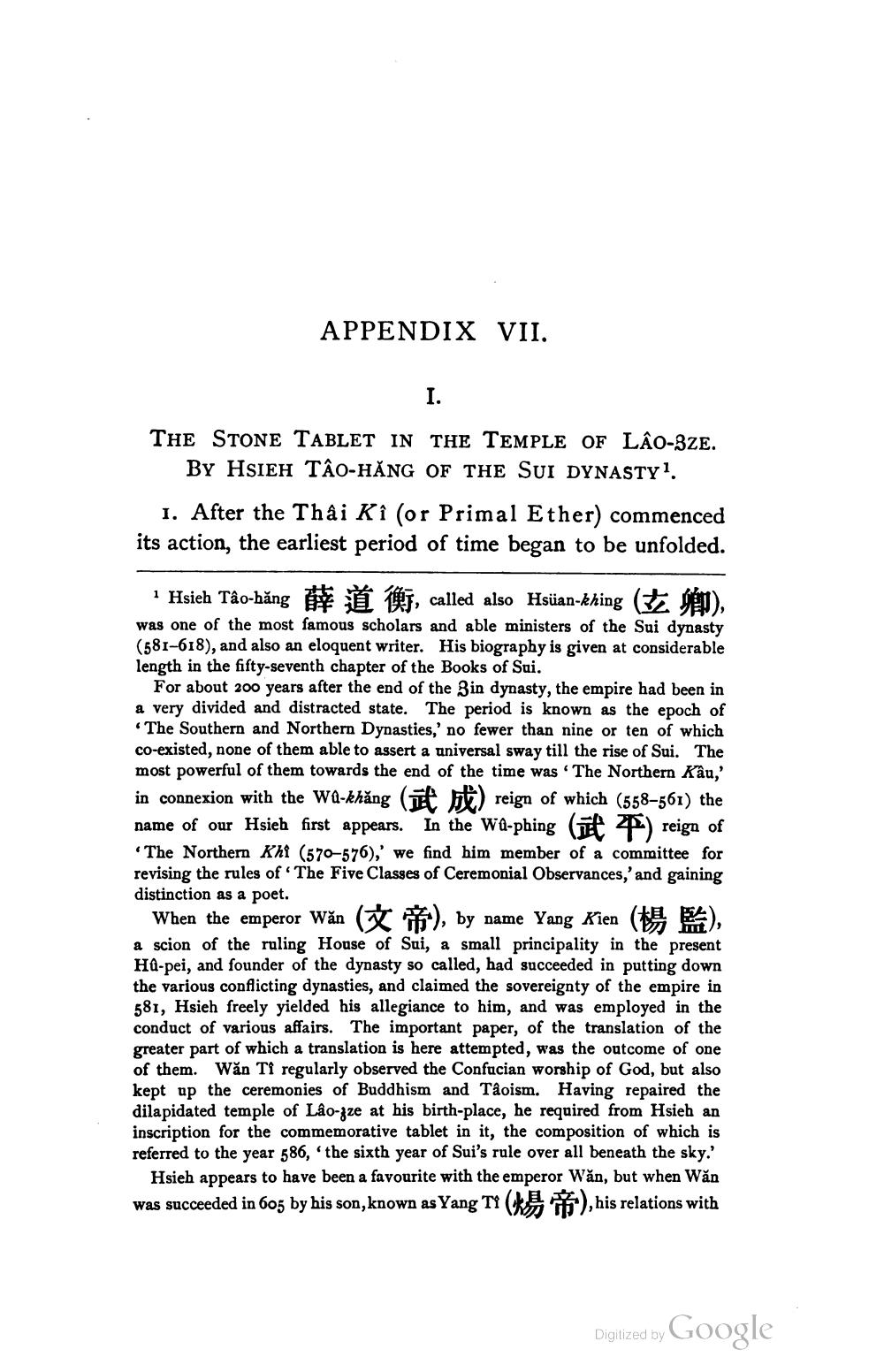________________
APPENDIX VII.
THE STONE TABLET IN THE TEMPLE OF LÃO-ZZE.
By HSIEH TÂO-HĂNG OF THE SUI DYNASTY 1. After the Thai Ki (or Primal Ether) commenced its action, the earliest period of time began to be unfolded.
For at the fifty-seventh cheat writer. His hie ministers of the
1 Hsieh Tâo-hăng
, called also Hsüan-khing (X ), was one of the most famous scholars and able ministers of the Sui dynasty (581-618), and also an eloquent writer. His biography is given at considerable length in the fifty-seventh chapter of the Books of Sui.
For about 200 years after the end of the Zin dynasty, the empire had been in a very divided and distracted state. The period is known as the epoch of
The Southern and Northern Dynasties,' no fewer than nine or ten of which co-existed, none of them able to assert a universal sway till the rise of Sui. The most powerful of them towards the end of the time was 'The Northern Kâu,' in connexion with the Wa-khăng
reign of which (558-561) the name of our Hsieh first appears. In the Wa-phing
reign of • The Northern Khi (570-576),' we find him member of a committee for revising the rules of The Five Classes of Ceremonial Observances,' and gaining distinction as a poet.
When the emperor Wăn (t ), by name Yang Kien ( E), a scion of the ruling House of Sui, a small principality in the present Hû-pei, and founder of the dynasty so called, had succeeded in putting down the various conflicting dynasties, and claimed the sovereignty of the empire in 581, Hsieh freely yielded his allegiance to him, and was employed in the conduct of various affairs. The important paper, of the translation of the greater part of which a translation is here attempted, was the outcome of one of them. Wăn Ti regularly observed the Confucian worship of God, but also kept up the ceremonies of Buddhism and Taoism. Having repaired the dilapidated temple of Lâo-jze at his birth-place, he required from Hsieh an inscription for the commemorative tablet in it, the composition of which is referred to the year 586, the sixth year of Sui's rule over all beneath the sky.'
Hsieh appears to have been a favourite with the emperor Wăn, but when Wăn was succeeded in 605 by his son, known as Yang TY
his relations with
Digitized by Google




